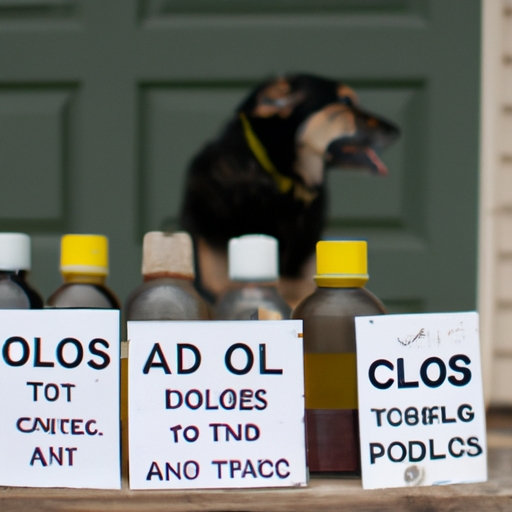As a caregiver for your beloved pet, it’s paramount you know what’s safe and what’s not for your dog’s consumption. Just like some foods that are safe for humans can be lethal for dogs, certain essential oils can also pose a serious threat. This piece will delve into the oils that are toxic to dogs, how they can affect your pet, and how to prevent accidental ingestion.
H2: Understanding Essential Oils
Essential oils are highly concentrated plant-based oils that are often used for their therapeutic properties. While they may be beneficial for humans, they can be toxic or even fatal for dogs. Dogs have a heightened sense of smell, making them more sensitive to essential oils, both topically and orally.
There are several ways your dog can be exposed to these oils:
- Inhalation: Dogs can inhale the oils when they are diffused in the air.
- Ingestion: Dogs can ingest the oils by licking their fur or the area where the oil was applied.
- Topical application: This occurs when the oils are applied directly to the dog’s skin.
H2: Toxic Oils for Dogs
The following table lists some of the essential oils that are toxic to dogs:
| Essential Oil | Effect on Dogs |
|---|---|
| Tea Tree Oil | Causes weakness, vomiting, and depression. |
| Cinnamon Oil | Causes skin irritation and affects the digestive system. |
| Pennyroyal Oil | Damages the liver and can be fatal. |
| Pine Oil | Causes skin and digestive issues. |
| Sweet Birch Oil | Highly toxic and can lead to death. |
| Wintergreen Oil | Highly toxic and can lead to death. |
H2: Signs of Essential Oil Poisoning
If your dog has been exposed to toxic oils, they may exhibit certain symptoms. These include:
- Muscle weakness
- Difficulty walking
- Vomiting
- Drooling
- Burns on the lips, tongue, skin, or gums
- Rapid breathing or panting
If you notice any of these symptoms, seek veterinary care immediately.
H2: Preventing Accidental Ingestion
To prevent accidental ingestion or exposure, take the following precautions:
- Store oils out of your dog’s reach.
- Use a diffuser in a room where your dog doesn’t have access.
- Never apply essential oils directly to your dog’s skin without consulting with a vet.
- Avoid using oils in recipes for homemade dog treats or food.
H2: Safe Alternatives to Essential Oils
If you’re looking to use essential oils for their therapeutic properties, consider safer alternatives for your pets. Some safe oils include:
- Chamomile Oil: This oil is known for its calming effects.
- Frankincense Oil: This oil is often used for its anti-inflammatory properties.
- Lavender Oil: This oil is used for its calming and healing properties.
However, even safe oils should be used in moderation and under the guidance of a vet.
FAQ
Q: Can I use a diffuser around my dog?
A: Yes, but only with oils that are safe for dogs and in a well-ventilated area.
Q: Is coconut oil safe for dogs?
A: Yes, when used in moderation, coconut oil can be beneficial for dogs.
Q: Can I use essential oils on my dog’s skin?
A: Only under the guidance of a vet. Even oils considered safe can cause skin irritations in dogs.
Q: What should I do if my dog ingests a toxic oil?
A: Seek immediate veterinary care.
In conclusion, while essential oils can be beneficial for humans, they can pose a serious risk to dogs. As a caregiver, always prioritize your pet’s safety and consult with a vet before using any oils around your dog.



